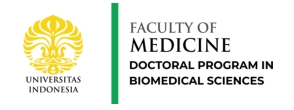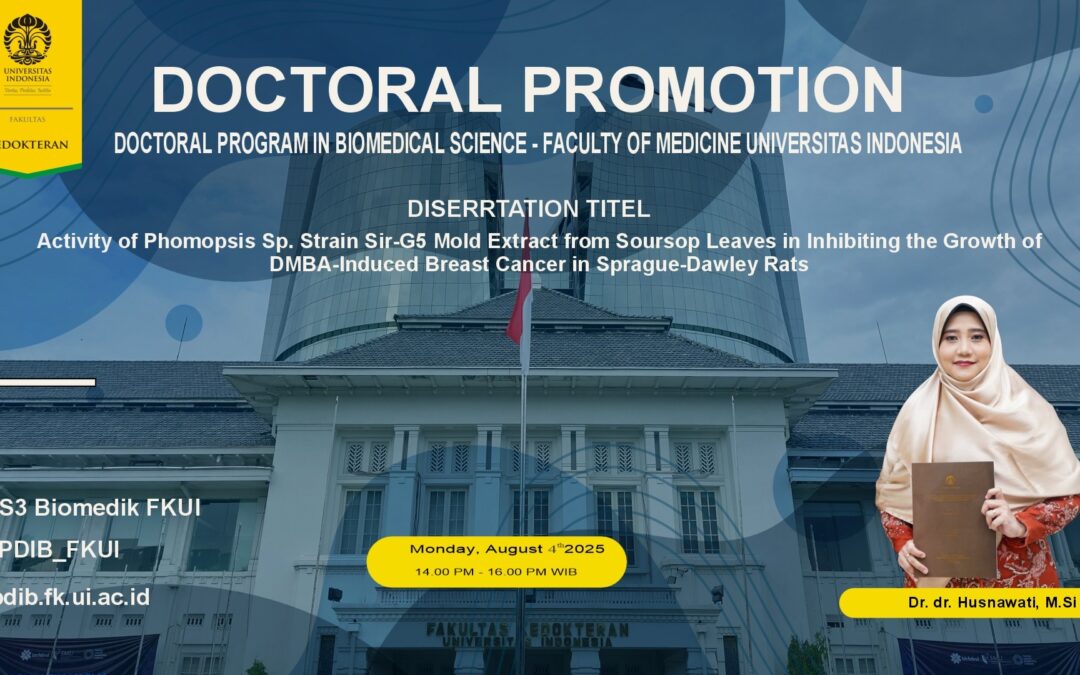Good news comes from the world of health research in Indonesia. A doctoral student from the Biomedical Sciences Department of the Faculty of Medicine, University of Indonesia (FKUI), Dr. Husnawati, MSi., has discovered that an extract from the endophytic fungus Phomopsis sp., taken from Indonesian soursop leaves, has the potential to be an alternative treatment for breast cancer.
Breast cancer is a leading cause of death in adult women.The incidence of breast cancer is increasing every year. The development of breast cancer involves numerous molecular pathways in the body, and currently available therapies are not always completely successful because some patients experience recurrence or do not respond to existing drugs. Furthermore, there are also unexpected side effects.
Each type of breast cancer has different characteristics, so treatment must be tailored. One treatment approach is to stop the growth of cancer cells, induce cancer cell death, or boost the body’s immune system to fight the cancer.Furthermore, Indonesia has abundant natural resources, including medicinal plants. One plant known for its anticancer properties is soursop leaves. Unfortunately, the utilization of soursop leaves is hampered by the harvesting process and often uncontrollable natural conditions. Therefore, Dr. Husnawati began looking for alternatives, namely by researching endophytic fungi—tiny organisms that live attached to—from soursop leaves.
The dissertation research, entitled “Activity of Phomopsis sp. strain Sir-G5 Mold Extract from Soursop Leaves in Inhibiting the Growth of DMBA-Induced Breast Cancer in Sprague-Dawley Rats,” was supervised by Professor Dr. Drs. Kusmardi, MS. with co-promoters Prof. drh. Bambang Pontjo Priosoeryanto, MS, Ph.D. and Prof. Dr. Ir.I Made Artika, M.App.Sc. This research tested the effects of Phomopsis extract on rats specifically bred to develop breast cancer. The results were very encouraging:This extract significantly reduced tumor size, especially at a dose of 20 mg/kg body weight, with results comparable to the standard drug tamoxifen.Furthermore, this extract also demonstrated the ability to inhibit receptors and proteins involved in cancer cell growth, promote natural cancer cell death, and improve the immune system’s response.
This was observed both in tumor tissue and blood measurements. This research also involved computer-assisted (in silico) testing, which demonstrated that the active compounds in Phomopsis extract could bind strongly to the HER2 protein—a key driver of breast cancer growth.
This dissertation research was successfully defended by a panel of examiners chaired by Prof. Dr. dr. Andon Hestiantoro, Sp.OG(K), MPH., with members Prof. Dr. dr. Erni H. Poerwaningsih, MS., and Prof. Dr. apt. Berna Elya, MSi., as well as guest examiners from Jenderal Soedirman University, Dr. dr. Gita Nawangtantrini, Sp.PA, MKes.
Dr. Husnawati, MSi., stated that this finding provides new hope in the development of natural therapies based on local biodiversity. “We hope this research can be continued to a higher level, so that it can one day become a real therapy for breast cancer patients in Indonesia,” she said. This research proves that Indonesia’s natural resources still hold much potential for development as future health solutions.

